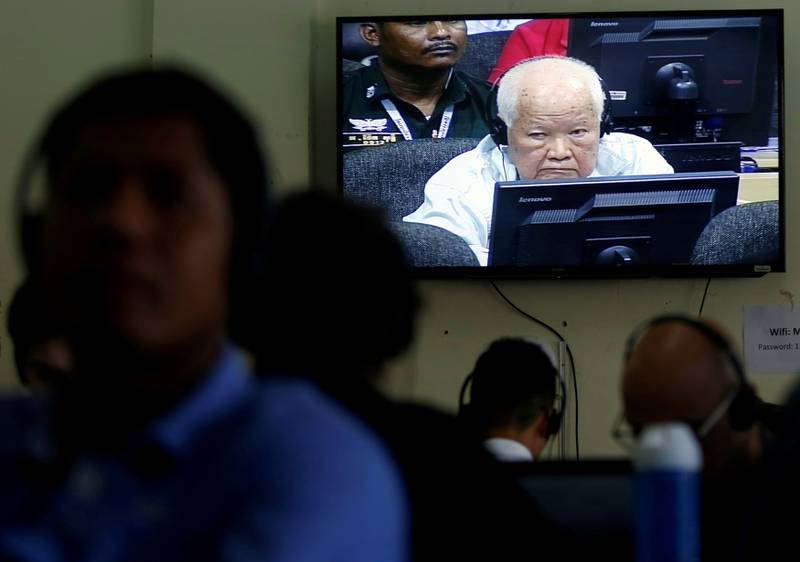This week, a 90-year-old man is up before a UN-backed war crimes tribunal in Phnom Penh, Cambodia. Khieu Samphan’s appeal against his genocide conviction should in theory shine a light upon one of the most terrible periods of Cambodian history. The defendant was head of state during the years the country was ruled by the Khmer Rouge from 1975-79. In that time, over a quarter of the population died during a murderous, Maoist failed attempt to turn Cambodia into an agrarian utopia.
Khieu’s trial is in some ways symbolic; he is already serving a life sentence after being found guilty in 2014 of crimes against humanity. But it is also important, not least because it may be the last of the cases to be heard by the Extraordinary Chambers in the Courts of Cambodia (ECCC) set up in 2006 to bring former Khmer Rouge leaders to account for the horrors they inflicted upon their country all those decades ago.
It is also an impressive exception to the climate of impunity in the region. While no other South-East Asian leader stands accused of being responsible for the deaths of millions, justice was denied to the more than 500,000 victims of the anti-communist purge perpetrated in Indonesia from 1965 to 1966, while it seems entirely possible that none of Myanmar’s past and present leadership will ever have to answer for their persecution and ethnic cleansing of the Rohingya. The trials in Cambodia came far too late for many – not least the Khmer Rouge leader Pol Pot, known as “Brother Number One”, who died before the court was established – but they do represent the country delivering a real reckoning with its past.




